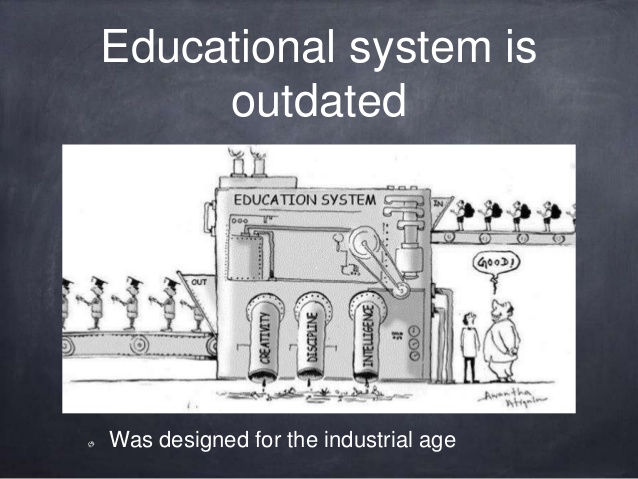The world has radically changed in the last two centuries, yet the way schools prepare our children has remained largely static. It is still modeled on the needs of the industrial age.
When you look at today’s school, it is still pretty much organized like an assembly line: ringing bells, separate classrooms for each subject, unidirectional transference of knowledge, learning by age group. This outdated model reflects the cultural biases at that time; it is based on questionable assumptions. For example, is it valid to assume that students should be grouped in a similar age bracket? Looking at various perspectives is an effective way to respond to challenges.
It is with a similar mindset that we Little Steps Preschool, India want to tackle challenges in education. We are interested in examining forward-thinking education systems and learning models, particularly those in which individual talents are acknowledged and nurtured.
We’ve been alienating so many kids who no longer see any purpose in going to school. For that reason, it seems a good time to revisit the nature and purpose of school, a purpose that is attuned to society’s current needs.
First, let me clarify what we mean by “purpose”. A meaningful purpose is one that is never fully reachable, but is, instead, aspirational. Now, imagine tomorrow’s school as an ecosystem that stimulates students to discover and nurture their own unique gifts. This is an ambitious mission and not an easy job. And yet, such a vision acknowledges each individual student as a unique whole; it goes far beyond basic scientific literacy or English language skills. Don’t get me wrong; I am not saying that the Common Core, the government standards that establish topics which students should master by the end of each grade, is not important. I am just attempting to convey that this is not enough to grow a fulfilled intellect and soul.
School needs to be more responsive to the differences among students, whether it be their abilities, their interests, or their cultural backgrounds. School needs to enable children to become adept not only at regurgitating the minimum information needed — machines are way better than us at that, anyway! — but also and more importantly at using their knowledge to conceive, to create, to think critically, and to work collaboratively. School needs to support students’ learning experience and engage students by fostering their curiosity and energizing their creative thinking. School needs to provide an innovative framework that equips our children to deal with the established and the unknown. School needs to implement a pleasurable and stimulating environment which encourages children to thrive and succeed in an ever-changing world. The challenge now is how to transform the current structure and processes of our schools, and to re-imagine them.

